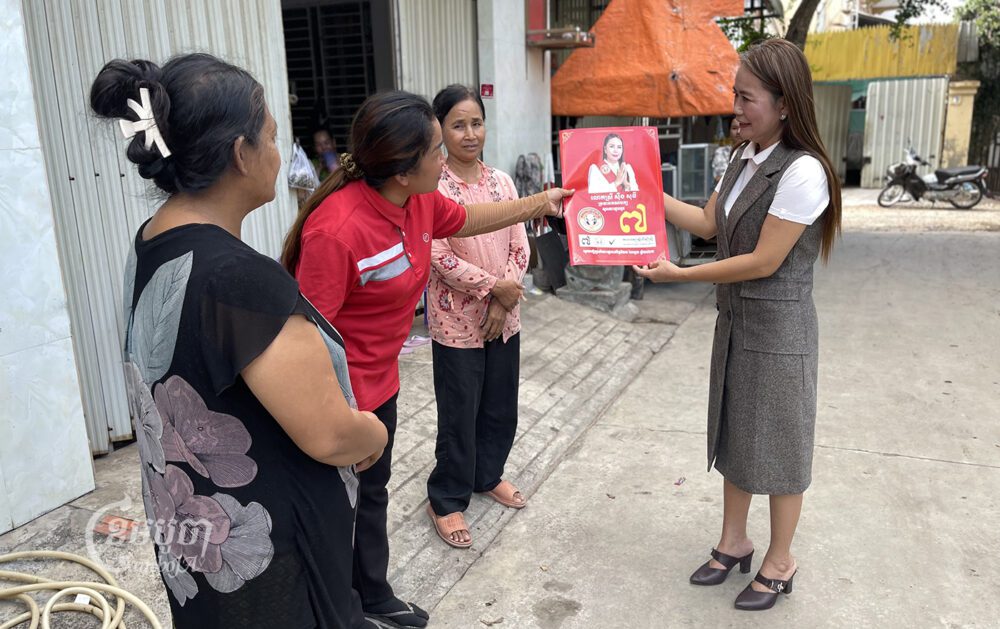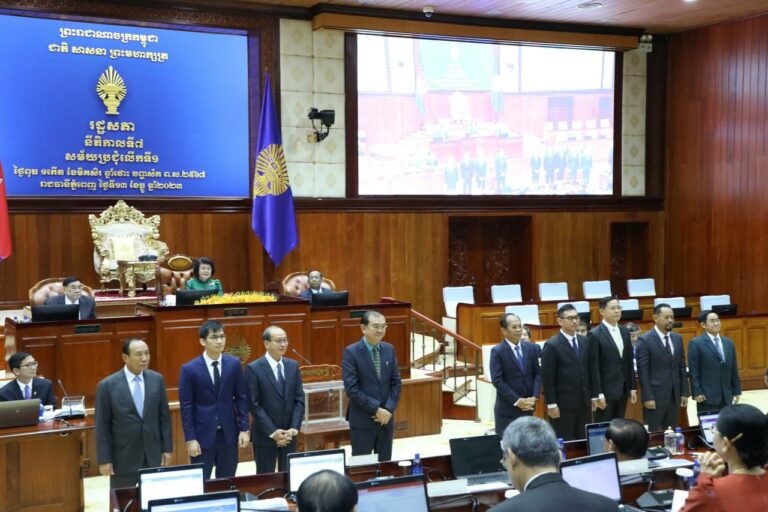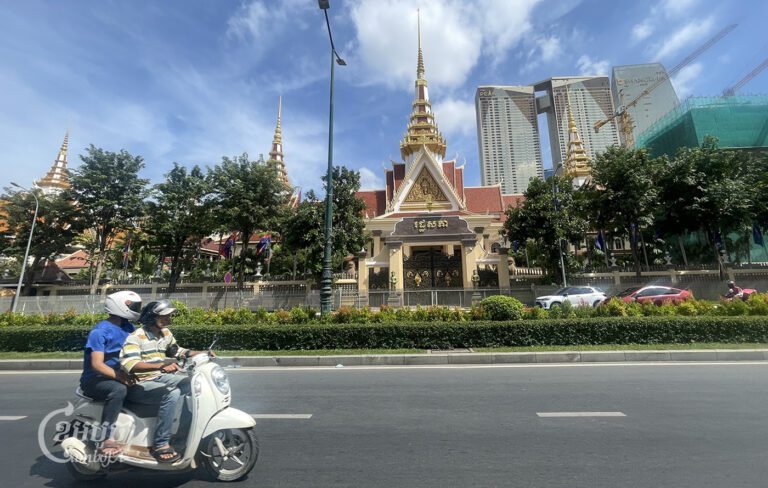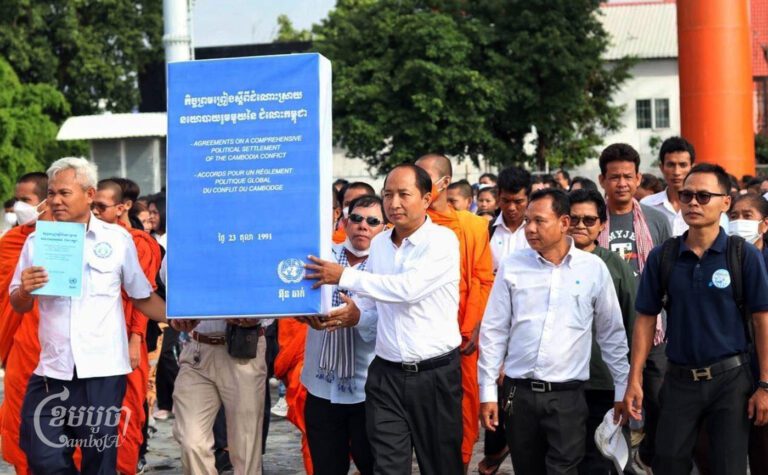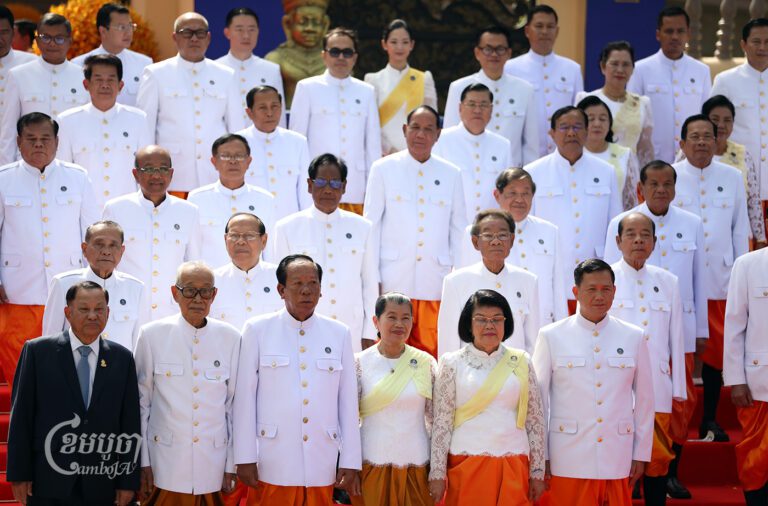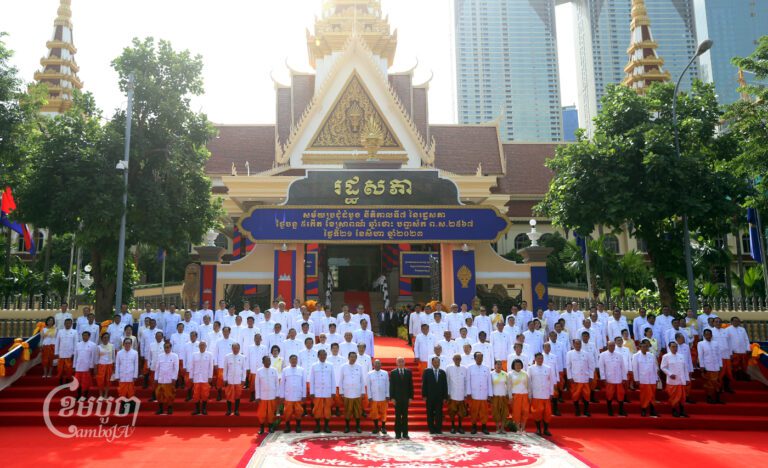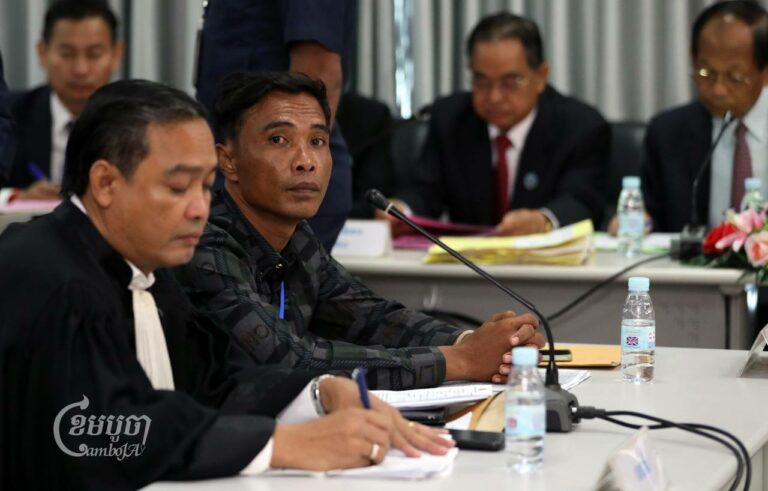Soeung Sothy sits in a small room at a woman’s home in Phnom Penh’s Meanchey district. Sothy says the woman is poor and takes care of a daughter who has a medical condition.
Sothy, the president of the Women for Women Party, offers some words of encouragement to the mother, and hands her food supplies and money before leaving.
“Keep going and do not give up,” she says to the mother.
Meeting people with limited economic means has helped sculpt her political outlook, Sothy says, especially in her interactions with women from rural households.
“I want all women to stand up and not think that they are weak, need to stay home and are dependent on their husbands,” Sothy says after leaving the woman’s house. “Because of traditional norms, women think that their role is only as a housewife, which is one of the reasons why they lose their strength.”
The Women for Women’s Party has a new name but was formed in 1999 as the Rice Party, a political party formed to improve access to education, end corruption and help orphans and the elderly.
The Rice Party contested the 2003 national election and came in fifth with under 70,000 votes, far behind the vote tallies of the Sam Rainsy Party, Funcinpec and Cambodian People’s Party.
Sothy said the previous president of the Rice Party was older and ready to step back, picking her to be the new leader. She decided to change the name of the party two months ago, and has shifted the party’s focus to addressing issues affecting women.
She wants women to be more involved in solving social issues and feels they are undervalued, lacking education and employment opportunities. Pressed on how exactly she will empower women and address issues impacting them, Sothy said if she was prime minister she would build a community with easy access to markets that would improve the economic standing of the residents.
It was unclear how this would directly impact women, but Sothy added that she wanted to educate more women.
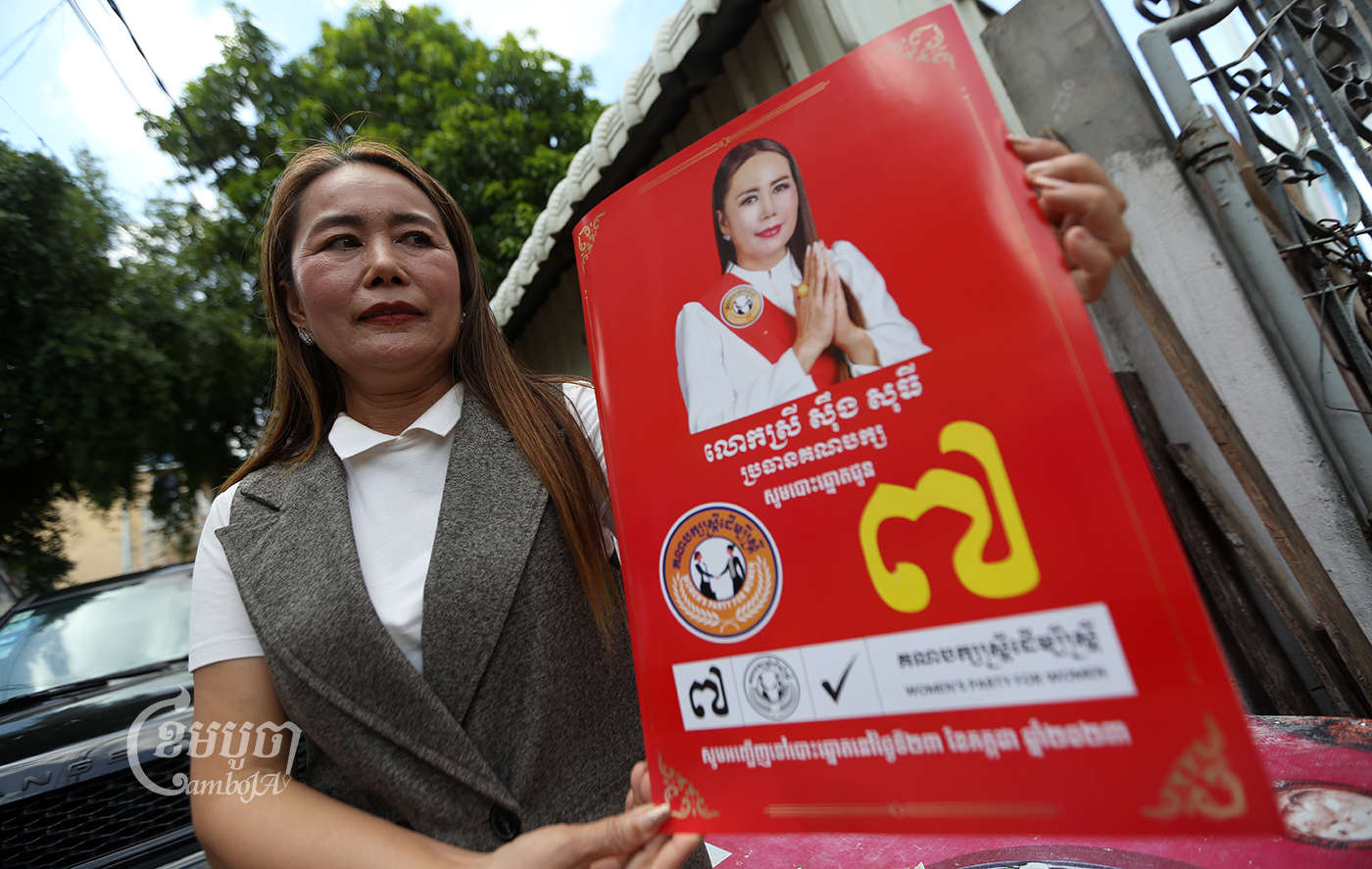
However, the party has stuck true to its name and nominated the most women to stand as candidates out of all 18 parties in the July national election. The party will contest in 18 provinces and is fielding 68 candidates, 80% of which are women according to database resource Kamnotra.
Cambodian politics has long been plagued with low participation of women candidates, and the larger parties contesting in July are showing little change. Funcinpec will have only 5% women candidates in July, while the Cambodian People’s Party and Khmer National United Party will have 13% and 15% women candidates respectively.
Sok Eysan, spokesperson of the CPP and a senator, acknowledged the party had only about 13% women candidates this year, but said that 20% to 30% of the party’s candidates in the 2022 commune elections were women.
Eysan said it was hard to find women with high qualifications to stand for office. He also pointed out that being a lawmaker was specialized work and needed a high quality person for the job.
“In practice, we see that some women have low levels of education, their political awareness is limited, and they have limited physical strength. So their public service to the people is limited,” said Eysan.
Eysan wasn’t worried that the party’s low number of women candidates would hurt them.at the ballot.
Funcinpec spokesperson Nhoeun Raden claimed the party had 29 women candidates out of 125. But NEC documents show the party has only 8 candidates in its main list and 21 other women among the 153 reserve candidates.
He said the party followed its own procedures in picking candidates and pointed to the one woman vice president — Ratana Tevy — in the party. Again, he was not concerned about a lack of women candidates affecting the party’s prospects.
“Even though the party has so few women, it does not affect the party’s popularity,” he said.
Chak Sopheap, executive director for rights group Cambodia Center for Human Rights, said parties who said there was a lack of qualified women candidates were only making excuses.
“At this point, a woman’s competence is not a factor,” she said. “If they say it is still about incompetence, then it could be more due to their systemic issues.”


